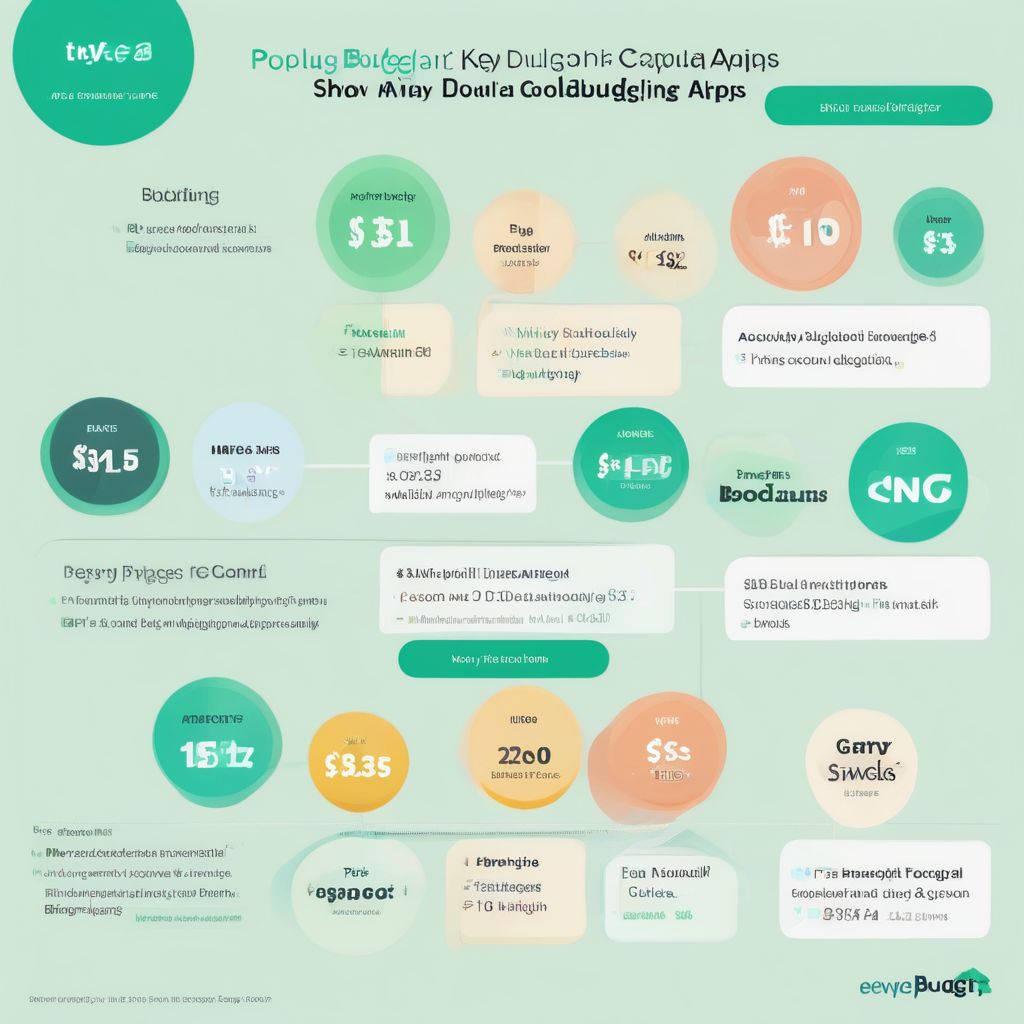Ever dream of that dream vacation, a down payment on a house, or simply having peace of mind about your finances? It all starts with understanding where your money goes. Tracking your expenses can feel like a chore, but thankfully, the right budgeting app can transform it into a powerful tool for achieving your financial goals. In this guide, we’ll explore the best budgeting apps for tracking your expenses, helping you find the perfect fit for your needs.
Why Use a Budgeting App?
Before diving into the specifics, let’s talk about why using a budgeting app is a game-changer. Think of it as your personal financial assistant, diligently tracking every penny, categorizing your spending, and highlighting areas where you might be overspending. As a nutritionist and meal prep coach, I often compare budgeting to healthy eating: planning and tracking are crucial for success! Just as meal prepping helps you make conscious food choices, a budgeting app empowers you to make informed financial decisions.
Top Budgeting Apps: A Detailed Look
Choosing the right budgeting app can feel overwhelming with so many options available. To simplify things, we’ve analyzed the top contenders, considering factors like features, user-friendliness, and cost.
Mint: Best for Overall Budgeting
Mint, a pioneer in the budgeting app space, connects directly to your bank accounts and credit cards, automatically categorizing transactions. Its comprehensive dashboard provides a clear overview of your income, expenses, and net worth. Mint also offers personalized financial advice, credit score tracking, and bill payment reminders. “Mint is like having a financial advisor in your pocket,” says personal finance expert, [Fictional expert name], author of [Fictional book title].
YNAB (You Need A Budget): Best for Zero-Based Budgeting
YNAB takes a unique approach called zero-based budgeting. This method encourages you to assign every dollar a purpose, ensuring your income minus your expenses equals zero. YNAB excels at helping you prioritize your spending and gain control over your finances. It also offers educational resources and a supportive community.
Personal Capital: Best for Investment Tracking
While Personal Capital also offers budgeting features, its strength lies in investment tracking. It provides a holistic view of your financial portfolio, analyzing your investment performance and offering personalized advice. If you’re focused on growing your wealth, Personal Capital is a powerful tool.
EveryDollar: Best for Envelope Budgeting
Inspired by the traditional envelope system, EveryDollar helps you allocate specific amounts to different spending categories. This hands-on approach can be particularly effective for those who prefer a visual and tactile budgeting experience. EveryDollar is created by Dave Ramsey, a well-known personal finance personality, and aligns with his financial principles.
Goodbudget: Best for Shared Budgeting
Goodbudget is ideal for couples or families managing finances together. It allows multiple users to access and update the budget in real time, promoting transparency and collaboration. Goodbudget’s “envelopes” sync across devices, making it easy to stay on the same page.
 Budgeting App Comparison Chart
Budgeting App Comparison Chart
Choosing the Right App for You
The “best” budgeting app depends on your individual needs and preferences. Consider your budgeting style, financial goals, and desired features. Do you prefer a hands-off approach with automatic tracking, or a more active role in categorizing your expenses? Are you primarily focused on budgeting, or do you also need investment tracking?
Tips for Maximizing Your Budgeting App
- Consistency is key: Regularly review and update your budget to stay on track. Just like meal prepping requires weekly planning, budgeting requires ongoing attention.
- Set realistic goals: Start with small, achievable goals and gradually work towards larger financial milestones. This approach promotes sustainable progress and prevents discouragement.
- Take advantage of features: Explore all the features your chosen app offers, such as personalized insights, bill payment reminders, and goal tracking.
- Don’t be afraid to experiment: Try different apps until you find the one that clicks with you. There’s no one-size-fits-all solution.
Beyond Budgeting Apps: Other Useful Tools
While budgeting apps are invaluable, consider complementing them with other tools, like debt trackers or emergency fund planners. These resources can help you tackle specific financial challenges and build a more secure future. Check out our articles on building an emergency fund (https://financialfreedomadvice.live/how-to-build-an-emergency-fund-step-by-step/) and managing debt (https://financialfreedomadvice.live/the-best-apps-to-track-and-manage-your-debt/) for more guidance.
Conclusion
Taking control of your finances can feel empowering, and the right budgeting app can be your guide. By understanding your spending habits, setting realistic goals, and utilizing the tools available, you can pave the way for a healthier financial future. Explore the apps we’ve discussed, consider your personal needs, and embark on your journey toward financial well-being. We encourage you to share your experiences and favorite budgeting tips in the comments below! What strategies have helped you most? Which app has become your financial companion? Let’s learn from each other and build a supportive community. Also, explore the future of digital budgeting tools (https://financialfreedomadvice.live/the-future-of-digital-tools-for-personal-budgeting/) for even more insights.



